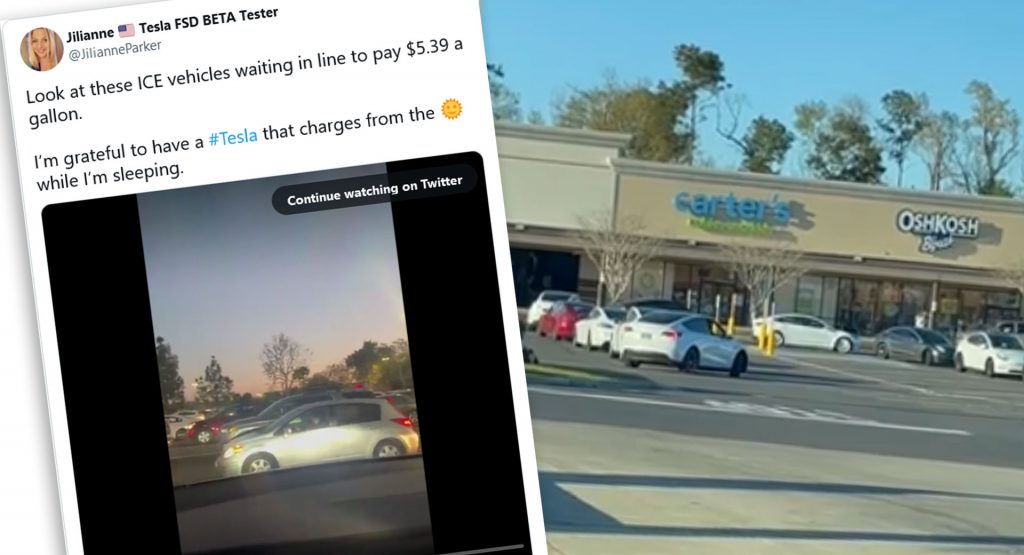As gas prices continue to rise, more drivers are looking towards EVs as a way to soothe the pain at the pumps. However, buying an electric vehicle isn’t the cure-all for our current woes, and unless infrastructure keeps up, it could be just as dreadful.
According to AAA Gas Prices, the average price for a gallon of regular gasoline across the United States right now is $4.252, while in California it’s a staggering $5.855 per gallon. With prices continuing to rise, drivers have been lining up to save money while they can.
Most automakers have pledged to introduce more electric vehicles, with many brands from VW to Maserati even promising to go fully electric within the end of the decade.
Read: Criminals Are Drilling Fuel Tanks To Steal Gas, Here’s How You Can Protect Yourself
However, it doesn’t matter how many electric vehicles are on the road if there isn’t anywhere to plug them in.
The very rare time as a Tesla owner I wish I could pay $6/gallon for gas and be on my way. We need more super chargers @elonmusk pic.twitter.com/qmxbghkycO
— Ben Bergman (@thebenbergman) March 20, 2022
EV drivers on Facebook and Twitter have been quick to point and laugh at ICE owners waiting in line to buy gas, but now the shoe is on the other foot as electric vehicle owners are forced to wait for other EVs to charge – sometimes for hours on end.
Look at these ICE vehicles waiting in line to pay $5.39 a gallon.
I’m grateful to have a #Tesla that charges from the
while I’m sleeping. pic.twitter.com/oGoHG03cxb
— Miss Jillybean (@MissJilianne) March 15, 2022
If there are weak links in the EV scheme of things, it is charging time and station availability. Even with DC fast chargers available, you’ll need at least 30 minutes to get a healthy charge up to around 80 percent (sometimes even less) of the battery capacity. High demand on the power grid also means that the chargers aren’t able to keep up, leading to even longer charge times.
The US Government plans to install 500,000 new charging stations across the map in the next five years, but the majority will be Level 2 chargers which can only replenish about 25 miles of range per one hour of charge.
The effects of inadequate EV infrastructure are already starting to show, and time is running out for companies to catch up in order to meet the needs of the people.
Lead screenshot credit Dodge Challenger Group@Facebook & Jilanne@Twitter



